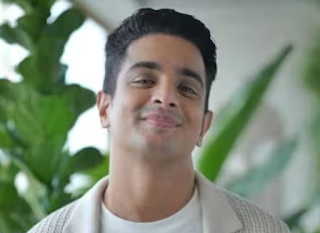The Maharashtra Police has filed a case against YouTubers Samay Raina, Ranveer Allahbadia, Ashish Chanchlani, Apoorva Mukhija, and several others over controversial remarks made on the comedy show India Got Latent. The case was registered after the cyber branch reviewed all episodes of the show, which had been widely circulated on social media. This marks the second FIR in connection with the controversy, as the Assam Police had already filed a similar case against Allahbadia, Raina, and others just a day earlier, accusing them of "promoting obscenity and engaging in sexually explicit and vulgar discussions."
A total of 30 individuals, including prominent content creators like Rakhi Sawant and Balraj Ghai, have been named in the Maharashtra case. The police have invoked Section 67 of the Information Technology Act, 2000, which deals with the transmission of obscene material through electronic media, along with other relevant sections of the Bharatiya Nyaya Sanhita. According to officials, some of the accused have already been summoned for questioning, while others will be called in for further investigation in the coming days. Law enforcement authorities are also monitoring social media platforms to identify any additional content that may violate legal guidelines.
The controversy erupted after Ranveer Allahbadia made a sexually explicit remark to a contestant on the show. The comment quickly went viral, sparking outrage among viewers and prompting calls for stricter regulation of digital content. As backlash intensified, the National Human Rights Commission (NHRC) intervened, formally requesting YouTube to take action by removing videos containing the controversial remarks.
Maharashtra Chief Minister Devendra Fadnavis weighed in on the matter, stating that while freedom of speech is a fundamental right, it comes with certain responsibilities. "Everyone has freedom of speech, but our freedom ends when we encroach upon the freedom of others," he said, signaling that stricter measures could be taken to prevent similar incidents in the future.
Following the public outrage, Allahbadia apologized on social media, acknowledging that his remark was inappropriate and lacked comedic value. "My comment wasn’t just inappropriate, it wasn’t even funny. Comedy is not my forte. I’m just here to say sorry. Many of you asked if this is how I wish to use my platform, and obviously, this is not how I wish to use it. I’m not going to give any context or justification or reasoning behind whatever happened," he said in his statement.
The controversy surrounding India Got Latent has reignited the debate over the limits of comedy and freedom of expression in digital content. While some argue that the show was meant to be satirical and should be protected under artistic freedom, others insist that it crossed ethical boundaries and promoted vulgarity under the guise of humor. The incident has also prompted discussions on the role of content moderation on platforms like YouTube, with many urging stricter enforcement of guidelines to prevent the spread of inappropriate material.
As the investigation progresses, legal experts believe that the outcome of this case could set an important precedent for regulating online content in India. With digital platforms becoming a major source of entertainment and information, authorities are increasingly focusing on balancing creative expression with the need for responsible content creation.



